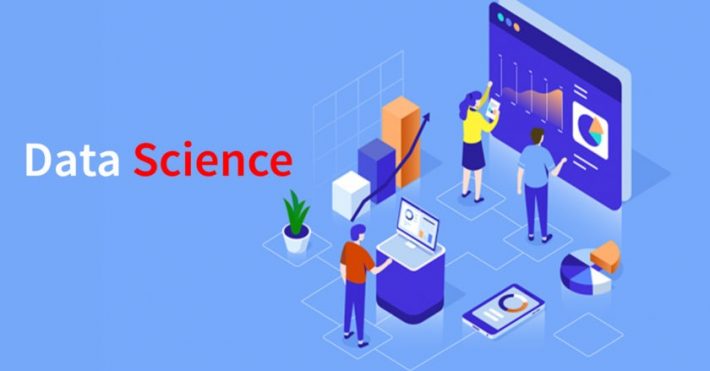Every human on earth supposedly creates 1.7MB of data every second and 2.5 billion GBs of data per day produced in total! As we continue to add more electronic devices to the internet — bulbs, watches, switches, cars, and more — data generated from these devices also increases exponentially. With the huge data flow, comes the growing demand to clean this data, convert it into usable formats, store it in databases or plugged into business processes later, and finally, create prediction models on top of the data and find hidden trends and information in the data. Today, data professionals are the rising need to drive businesses, enabling them to make data-backed decisions. Let us look at the job market in the post-pandemic era for data science roles.
Data Science Roles in Demand
Data Engineer
Based on the amount of data that needs handling. There are different infrastructure requirements faced by different job markets. This might include:
- Setting up a data lake or a data warehouse to store data from multiple sources or streams
- Data in different formats streamed from different sources and need storing in databases, S3 buckets, and other storage mediums so that they can be accessed from the code easily. These decisions and setting up of the databases usually taken on by the data engineer
- Deciding which infrastructure would be best to run machine learning algorithms and setting them up in the cloud
These tasks are usually handled by data scientists themselves. Unless the infrastructure requirements increase due to multiple data streams. In that scenario, data engineers are hired to help understand and set up the infrastructure requirements of a data science project.
Data Analyst
Deciding on whether a company needs to set up a data science team comes much later in the business scenario. But Data analysts, who can manually test the data streams of the company, comes in much earlier. It is only when analysts find that the data has snowballed into a massive size and it would make much more sense to analyze it programmatically. This is where data scientists and engineers come into the picture. They are usually hired to test the data by pulling it from databases. Using tools like Excel, Tableau, and other BI tools.
Machine Learning Engineer
Based on the type of data that a company is handling, after cleaning, normalizing, studying. And deciding which data points are actually having an impact on the business; Machine Learning engineers come into the picture. These engineers usually deal with different algorithms used to study the inner working of the data and find hidden trends. ML Models also built to extrapolate the data and make future business decisions that would benefit the company. ML engineers are in high demand today as more and more companies use ML-based libraries like Tensorflow and Scikit-Learn to parse their data and create newer models.
Data Scientist
Based on how big or small a company is, the data scientist is entrusted with a number of tasks. These can include:
- Cleaning the data and converting unstructured data to structured, as well as normalizing it
- Analyzing the data and deciding which data points are relevant to the requirements
- Testing different algorithms on the data and finding the one that works best
In the case of a startup. Data scientists also take on the job of a data analyst and a data engineer to conduct a deeper analysis of the raw data. They set up the infrastructure required to analyze and build on top of the data.
Data Science Job Market Post COVID-19
There is an increased interest in data and analytics post-COVID-19 as companies are trying to understand the market and how the pandemic will impact customer sentiments. Some data comparisons made with the market data from 2008’s financial crisis. Certain data predictions have held up as well — equity markets have fallen, people have turned to safer investments like gold. The demand for luxury goods has dropped. Real estate has seen a slump. And customer spending has contracted for the first time in decades.
While the general job market has seen many problems, the data science requirement has been relatively unaffected by the pandemic. Let us take a look at the problems faced by the data science job markets.
Problems Of Data Science Job Market:
- There was already a massive gap between supply and demand. Even reports published in March 2020 claim that the gap is so huge that it may not be bridged in the early future. While companies can train existing software developers or analysts to take up the role or hire fresh graduates in statistics or computer science and train them to fill the shoes. The demand for experienced data scientists is much greater
- Data is the oxygen for the market. Be it Wall Street trying to bet on the market or eCommerce trying to decide where to set up the next warehouse network based on demand; big decisions need to base on data today. In such an environment, the demand for well-seasoned data science recruits is running higher
- Most of the data scientists currently in the market are working for big tech giants like Google, Uber, Facebook, and Amazon. But that has not stopped smaller, well-funded startups like GoJek and Stripe from hiring data scientists. In fact, every company today sets up a data science team to make sure that it is making data-backed decisions to stay ahead of the competition even if it is through the help of a data science team consisting of a single data scientist.
The Future Of The Data Science Job Market?
The future is AI, big data, and machine learning as companies try to gather data from multiple sources by scraping data from the web. Collecting more customer data, or converting internal data sources into usable formats. As the dependency of companies on data increases, business decisions, product features. And even company targets based on the data itself. The data science job market is only expected to grow and more specialized job titles such as Machine Learning Engineers and Cloud Data Architects could evolve in the coming times. This is because the data science workflow itself is evolving based on new features, algorithms, data sorting and extraction opportunities



